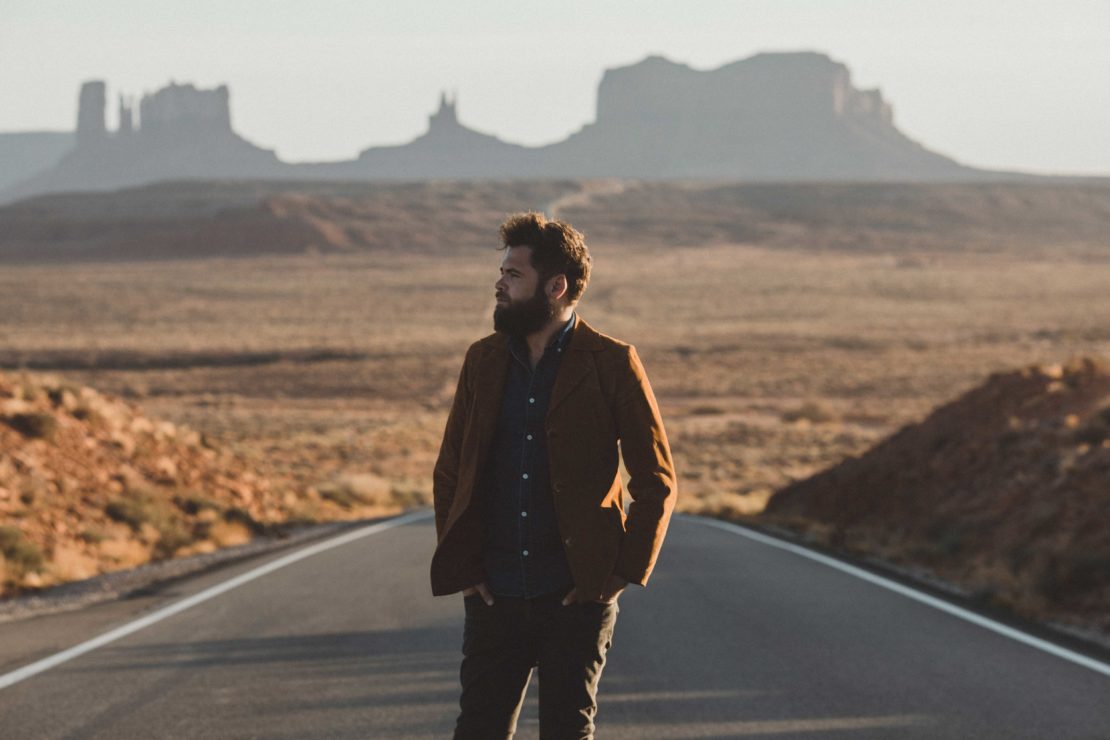Passenger scours North America for a place to belong in latest record Runaway

In his latest album “Runaway,” singer-songwriter Passenger explores his American roots. Photo by Jarrad Seng, provided by Nettwerk Music
It’s been a few years since the mega hit “Let Her Go,” but now English singer-songwriter Passenger has taken his indie style and merged it with some classic American inspiration for his new album Runaway. This is a heavily interconnected album with songs that tell a very personal story about Mike Rosenberg (the man behind the moniker Passenger): throughout the record, Rosenberg explores his American father’s homeland and tries to find meaning in the places he visits.
When he was young, Rosenberg made trips to the U.S. with his American father every summer and those journeys heavily influenced his music. This led to a month-long road trip across the U.S., where Rosenberg recorded live acoustic versions of every song on the album in locations he felt related to the music. Knowing which vast landscape is associated with each track contributes to both the isolation and freedom expressed in the music.
The evolution of Passenger’s style is displayed in Runaway. Instead of telling a story about letting a loved one go (like in his previous hit), Rosenberg uses this album to examine the loneliness associated with someone in search of love and belonging. The style of the music has also shifted. There’s still a distinctive Passenger feel that links to his past album All the Little Lights, but the American influence adds some country music elements. There are twangs from banjos, and the song “Runaway” could be the intro to a number of old-school westerns. There’s also an American soldier motif that is spread throughout Runaway, hinting at the pain Passenger feels at this time in his life.
Rosenberg uses this album to examine the loneliness associated with someone in search of love and belonging
The lead single “Hell or High Water” is about figuring out why a lover left — was it because of a big issue (Hell) or something relatively small (high water)? The fallout of a relationship always has someone asking questions, and this song explores that state of mind. The banjo, guitar, and drums make for easy listening that hides a depressing undertone. The acoustic version is recorded at Santa Monica Beach, and in the quiet moments you can hear the surf sweep over sand.
“Eagle Bear Buffalo” is the song most concerned with the natural theme of the album. Yellowstone National Park is the focus of the song, and as Rosenberg delves into the land, he reveals some intimate information. Staring at the clear water, he sees an inverse reflection of mountains. The magnificent place strengthens the feeling of insignificance and leaves Passenger in tears. The country style is very beneficial in this song; it helps connect the listener to Yellowstone and makes the setting vibrant in a way that only country music can.
“To Be Free” at first listen feels misplaced in this album—it has no country components and the main instrument is the piano. However, it is the focal point of all the songs, and explains why Rosenberg goes on this journey across the States. It tells the story of his grandparents and his father searching for a place to be free, and how the search itself hurt and shaped them.
Now it is Passenger’s time to find his place in the world, and the start of that journey inspired this album. The simple song has similarities to his older work and audiences can appreciate how far the artist has come since his early days.
Overall, Runaway is a thoroughly enjoyable album with some beautiful songs. The album is great for all types of listeners—for those who just want relaxing music and those who want to dive in and explore the deeper meanings behind the lyrics.
Runaway releases Aug. 31 on all streaming platforms.







